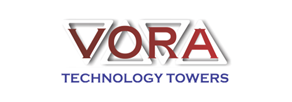
Keep An Eye Out for Key Trends That Will Reshape Accounting and Finance in 2023

Accounting fundamentals remain unchanged, but technological advances have created opportunities for financial professionals to adapt and improve their day-to-day processes. Many changes over the past few years have led to the rebirth of previously used Bookkeeping mistakes. Companies must embrace new challenges and find ways to prepare for the future.
Accounting plays a vital role in the functioning of any business. As we move into the 21st century, finance & accounting professionals have seen the focus of their responsibilities shift from simply recording various aspects of an organization’s financial health to building and managing an accounting function that is proficient and has the process of due diligence and control to keep costs in line. Those who have been most successful in navigating this transition have been able to help their companies achieve high performance in a challenging economy. As a result, many businesses, whether small or large, embrace today’s accounting trends to reshape their industries and gain more control over accounting functions and better visibility across the organization.
We have gathered the key trends that will be very important for accounting and finance in the coming year.
-
Cloud-Based Accounting Softwares
Cloud computing platforms and AI applications are increasingly common in accounting and finance. The combination of artificial intelligence and cloud software makes the future of accounting bright and profitable. Moving to the cloud makes providing clients with real-time access to their account data easier. AI-powered cloud finance enables the finance team to gain valuable insights into critical business data, allowing them to make strategic decisions in less time. Entering and processing large amounts of data and financial information that would previously take days or weeks can now be automated to save time. Basic-level accounting tasks such as data entry and daily calculations can also be done in less time using cloud computing software. By utilizing a cloud computing solution, the finance team will be freed from lower-level activities that are time-consuming, such as data entry and simple calculations. Therefore, migrating to the cloud saves you time and has countless advantages.
-
Offshore Staffing in Remote Work
The traditional workforce is changing. Employees are no longer tied to a physical office, and companies are taking advantage of this. Accounting is no exception, and it’s an industry that can do this faster than others.
More and more accountants are working remotely due to the pandemic and cloud software implementation, allowing employees to complete assigned tasks without being in the same building.
Working remotely has many benefits, including increased flexibility and reduced overhead costs. However, having the right technology solutions, such as virtual communication tools, cloud-based accounting software, and secure online data storage and sharing, is essential for a successful remote career.
-
Big Data & Data Analytics
Financial data analysis has become essential in every aspect of this function. According to a survey conducted by IMA, 67% of financial firms have either implemented or are planning to implement Big Data. Data analytics helps organizations gain valuable insights into their financial assets, discover business practices to increase business efficiency, and improve business management. Analyzing your company’s vast data will help you gain meaningful insights, predict future events, and automate non-routine financial activities. Overall, Big Data improves the customer experience and enables businesses to provide more comprehensive services. Compared to previous datasets, reporting becomes agile and accurate using Big Data. Incorporating data analytics into accounting has several benefits and has improved the overall process.
-
Automated Accounting Process
Automation has drastically changed most industries, and accounting is no exception. The entire management process was automated thanks to comprehensive solutions. It helped reduce errors and eliminate confusion.
Since the process depends on computers and servers, businesses tend to fall into money scams and vulnerable security attacks. This, in turn, increases the demand for internal auditors to check financial inputs and data accuracy. That way, internal staff can handle being replaced by robots.
-
Outsourcing of accounting functions
No one understands the difficulties of managing a company’s finances better than the finance team. However, the whole process can sometimes be time-consuming and prone to errors. Therefore, businesses should seek help from external accounting services. According to a recent KPMG survey, more than 40% of companies are expected to increase their use of outsourced accounting. As a result, outsourcing is becoming an increasingly important technique for companies to provide efficient services to their clients while adding value to their organizations. Outsourced accounting services range from professional bookkeeping and accounting to customized management reporting and auditor services.
-
Blockchain
Blockchain technology is a computerized record-keeping system that uses cryptocurrency over users’ networks. As a result, accountants clearly understand the organization’s responsibilities and resources. Hence, blockchain technology, so it’s no wonder many blockchain wallets are created monthly.
Most of them are owned by companies. Blockchain is changing the accounting industry by reducing settlement and bookkeeping costs and providing accurate asset ownership and history. In addition, blockchain technology has a high level of security. Multiple checks ensure smooth operation. As technology advances, accounting firms need to understand blockchain.
-
Value-Based Pricing
Every accounting firm should know the impact of high prices on their business, which can make them go out of business. On the other hand, value-based pricing takes a strategic approach that increases revenue by adjusting the price to the amount owed instead of its historical amount.
A value-based pricing model is best to provide you and your clients with pricing certainty. Apart from the monetary benefit, it helps accountants use their time effectively to increase productivity.
Wrapping Up
There was a time when the bulk of accountants’ work consisted of bookkeeping, data entry, and number crunching. However, the modern accountant faces client demands that demand much more than these traditional services. As a result, much of the evolution in the role of the accountant and the industry, in general, is facilitated by technology, such as accounting software, that lightens the workload so one can focus on strategic, value-added tasks.









